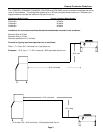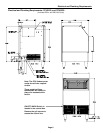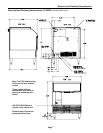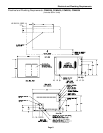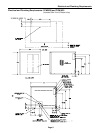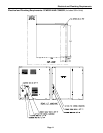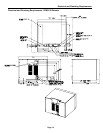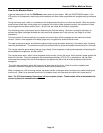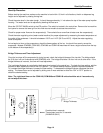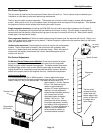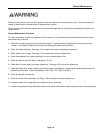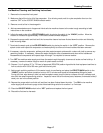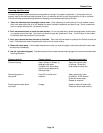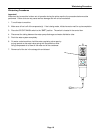
Cabinet Care
Page 18
Cleaning stainless steel
Commercial grades of stainless steel are susceptible to rusting if not properly maintained. It is important that you
properly care for the stainless steel surfaces of your ice machine and bin to avoid the possibility of rust or corrosion.
Use the following recommended guidelines for keeping your stainless steel looking like new:
1. Clean the stainless steel thoroughly once a week. Clean frequently to avoid build-up of hard, stubborn stains.
Also, hard water stains left to sit can weaken the steel's corrosion resistance and lead to rust. Use a nonabrasive
cloth or sponge, working with, not across, the grain.
2. Don't use abrasive tools to clean the steel surface. Do not use steel wool, abrasive sponge pads, wire brushes
or scrapers to clean the steel. Such tools can break through the "passivation" layer - the thin layer on the surface
of stainless steel that protects it from corrosion.
3. Don't use cleaners that use chlorine or chlorides. Don't use chlorine bleach or products like Comet to clean the
steel. Chlorides break down the passivation layer and can cause rusting.
4. Rinse with clean water. If chlorinated cleansers are used, you must thoroughly rinse the surface with clean water
and wipe dry immediately.
5. Use the right cleaning agent. The table below lists the recommended cleaning agents for common stainless steel
cleaning problems:
Cleaning Activity Cleaning Agent Method of Application
Routine cleaning Soap, Ammonia, Windex, or Apply with a clean cloth
detergent with water. or sponge. Rinse with
Fantastik, 409, Spic’nSpan clean water and wipe dry.
Liquid are also approve for
Stainless Steel.
Removing grease or Easy-Off or similar oven Apply generously, allow
fatty acids cleaners. to stand for 15-20 minutes.
Rinse with clean water.
Repeat as required.
Removing hard water spots Vinegar Swab or wipe with clean cloth.
and scale. Rinse with clean water and dry.



